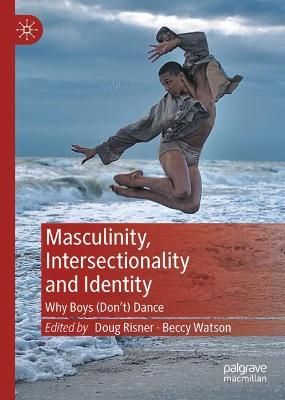CLC dance teacher published in book

Valerie Alpert
March 12, 2022
The College of Lake County’s Valerie Alpert has just had a written chapter published in Masculinity, Intersectionality, and Identity: Why Boys (Don’t) Dance, a book published on February 4, 2022, by Palgrave Macmillan and examines the intricate relationship between men and dancing.
Alpert has been at CLC for over 23 years, where she is the co-chair of the college’s dance department and a part of the dance faculty. She teaches all sorts of genres, such as ballet, contemporary, jazz, musical theater dance, Latin dance forms, and more!
The planning for this book began back in November 2018, when Alpert received a call for proposals of original scholarly articles addressing fundamental questions about why boys do or don’t dance. The request came from the National Dance Education Organization, or NDEO, and Alpert sent her proposal in, and the NDEO accepted in May of 2019.
Alpert’s interest to participate in this book began after realizing that research on dance in community college settings is virtually non-existent.
“I have been teaching for over twenty years at a community college, and my research revealed that there are over 110 other two-year colleges offering dance as an Associates of Arts degree,” said Alpert.
Since the number of colleges is so low, community college dance students–especially male students–have very particular and unique experiences, and Alpert was very eager to explore that idea and those experiences.
Alpert’s chapter focuses on men from underrepresented backgrounds and what factors–such as race, gender, ethnic identity, cultural experiences, and socioeconomic status–determine their decisions to dance at a community college and beyond.
Alpert found that male community college students face many obstacles while pursuing dance–individual motivation and drive, family, friends, teachers, financial situations, and larger systems are all at play. They can influence a student’s decision and attitude towards dance.
Additionally, Alpert explores the historically white Eurocentric traditions closely tied to higher education dance classes and their influence.

“My chapter highlights the need for current pedagogical models in dance to consider new realities about race, ethnicity, cultural identity, social class, sexual orientation, transnational, ageism, and ableism, in addition to reevaluating what a career in dance is, particularly in relation to the notion of what men are supposed to do and be. One important outcome is male dance students need more mentors,” said Alpert.
The book has pieces from both emerging scholars and international established scholars, each chapter exploring a different facet of the topic.
“I am in the category of emerging scholars, and it is quite intimidating to be sharing the same book space with authors who I have quoted in papers as a student throughout my education,” said Alpert.
While there have been nerves along the way, especially nerves related to being published in a book, Alpert has received support from many mentors that leave her grateful.
Overall, the book examines why some boys don’t dance and why many who do struggle to continue. Alpert hopes this book offers insight and understanding into male dancers’ experiences, hopefully improving how society and education support them.
The back of the book reads, “The volume will appeal to dancers, educators, researchers, scholars, students, parents, and caregivers of boys who dance.”
Currently, Alpert hopes that the CLC library will purchase a copy of the book for the school to read, but links below will be included for those interested.
Springer link: https://link.springer.com/book/10.1007/978-3-030-90000-7















